By Arielle Aronson/DFP Staff
When 13-year-old Jenna Markow takes the ice for a hockey clinic, she looks like any other young hockey player. She wears the same helmet, same pads and same skates as other people. Still, there is one critical difference between Jenna and her peers.
Jenna has Asperger’s Syndrome, a high-functioning form of autism characterized by profoundly impaired social skills, severe fixations, sensory issues and other developmental impairments or delays. She struggles to form friendships or carry on a conversation and has trouble interacting with her peers.
Still, in many ways, Jenna is an average teenager, and like other teens her age, she has discovered a love for hockey. However, learning how to play hockey as a teenager with a high-functioning form of autism is no easy task.
That’s where Athletes 4 Autism comes in. Kevin Gilroy, a BU men’s hockey player and one of the founders of Athletes 4 Autism, started the organization because of a desire to help children like Jenna. Gilroy had some experience with autistic children due to the men’s hockey team’s involvement in Autism Speaks, one of the nation’s largest autism science and advocacy organizations.
After seeing how much children at Autism Speaks events benefited from their time with the BU hockey team, Gilroy knew he wanted to do something independent of just the charity work he did with the hockey team to help autistic children reach their potential.
During the summer of 2011, Gilroy spent time teaching at local hockey clinics and was impressed by how much the clinics seemed to help children with special needs. Gilroy realized he could use athletic clinics as a way to help autistic children, but taking the ice, field or court with a professional player or highly trained teacher is expensive. Gilroy needed to find a way to teach clinics to children with and without special needs while somehow lowering the price of the lesson.
He was brainstorming a way to accomplish that with Courtney LaPorte, an executive director for The Autism Research Foundation (TARF), when the two came up with the idea to start an inclusion program through TARF that would benefit children with autism by hosting athletic clinics taught by college athletes.
“With college athletes, a child who can’t afford a real lesson from a professional teacher, the closest thing you have to them is a college athlete,” Gilroy said. “If you can get [the kids] into facilities like Agganis or facilities like over at Nickerson, for kids who have never played on a turf field, never played on a basketball court that has real floors, and then playing with a Division I college athlete, if I was playing with that when I was younger, that would have been huge for me.
“It’s just one of those things that would be very special for the kids.”
In order to help facilitate the program’s connections with a college athletics program, Gilroy and LaPorte involved Erica Casacci, a BU softball player and an intern at TARF, in the creation of the foundation. Together, the trio began to get the foundation off the ground. They invited BU athletes to a meeting in the fall to gauge interest in the program.
Gilroy said he expected “maybe 20” athletes to show up. Approximately 75 attended the meeting.
The program took off from there, and before the end of the school year, Athletes 4 Autism held its first major event, a family day on April 15 at Case Gymnasium at Boston University. The event was essentially an open house for any family who wanted to participate, and BU athletes from a variety of teams manned stations where children with and without autism could play games or practice a certain sport.
“A worry of mine was how many athletes would actually show up and if they were going to be able to interact with children with autism,” Gilroy said. “I thought they all did an unbelievable job.”
Gilroy said the widespread involvement of BU athletes will continue in the future. Many athletes, including approximately half of the men’s hockey team, have signed up to teach clinics in their respective sports. Athletes can choose whether they want to teach a child with autism, and if they agree to do so, LaPorte teaches the athlete how to handle an autistic child in order to help the lessons be as effective and beneficial as possible.
“My future vision for Athletes 4 Autism is to have a place where kids can just come and be themselves, with and without disabilities,” Gilroy said. “They learn that just because a kid has autism doesn’t mean that he can’t play hockey or he can’t play sports. Everybody can play.
“We don’t want to turn anyone away. We’ll take anyone no matter what. We want them to be more social and get more involved and then the kids without disabilities will see that they’re just kids like them, and eventually, everyone will be playing together.”
For Jenna Markow, Gilroy’s dream of children with and without disabilities playing together is about to become a reality. Jenna was recently invited to play on a recreational hockey team, and she is now working with Gilroy to improve her skills enough to play at the same level as everyone else on the team. According to Colleen Markow, however, Jenna has improved more than just her hockey skills since beginning the program.”
““Just seeing Courtney and Kevin, and seeing the fact that just with my daughter alone, they can take her and do so much with her in such a short amount of time, I can’t imagine what else they can do with anybody else,” Markow said. “She’s now trying to get her ideas and her thoughts out there, which, it’s huge because before, that never happened and never would have happened.
“There’s something that is making her so comfortable that she’s just ready to, ‘Let’s go. We’re going to do this.’ She just takes off. It’s definitely opened doors for her.”

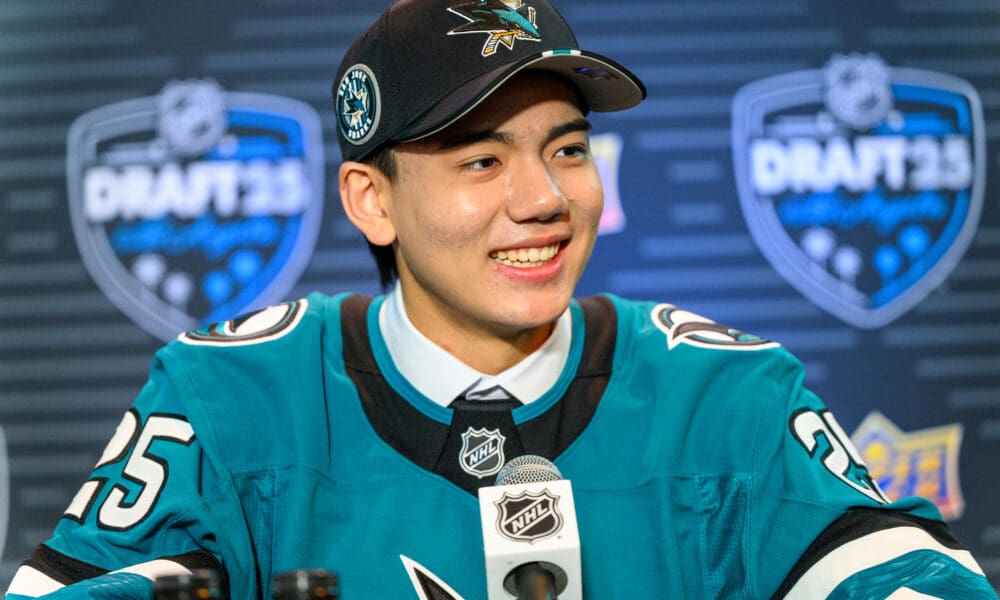
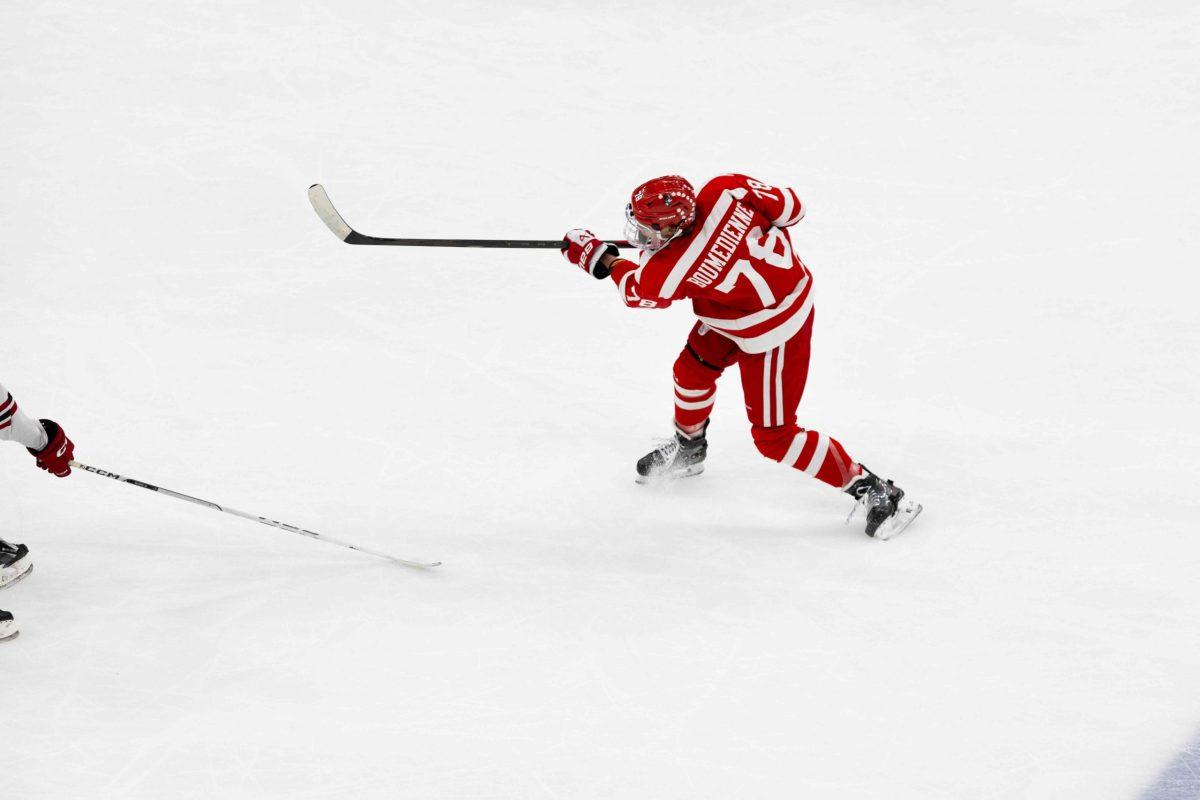
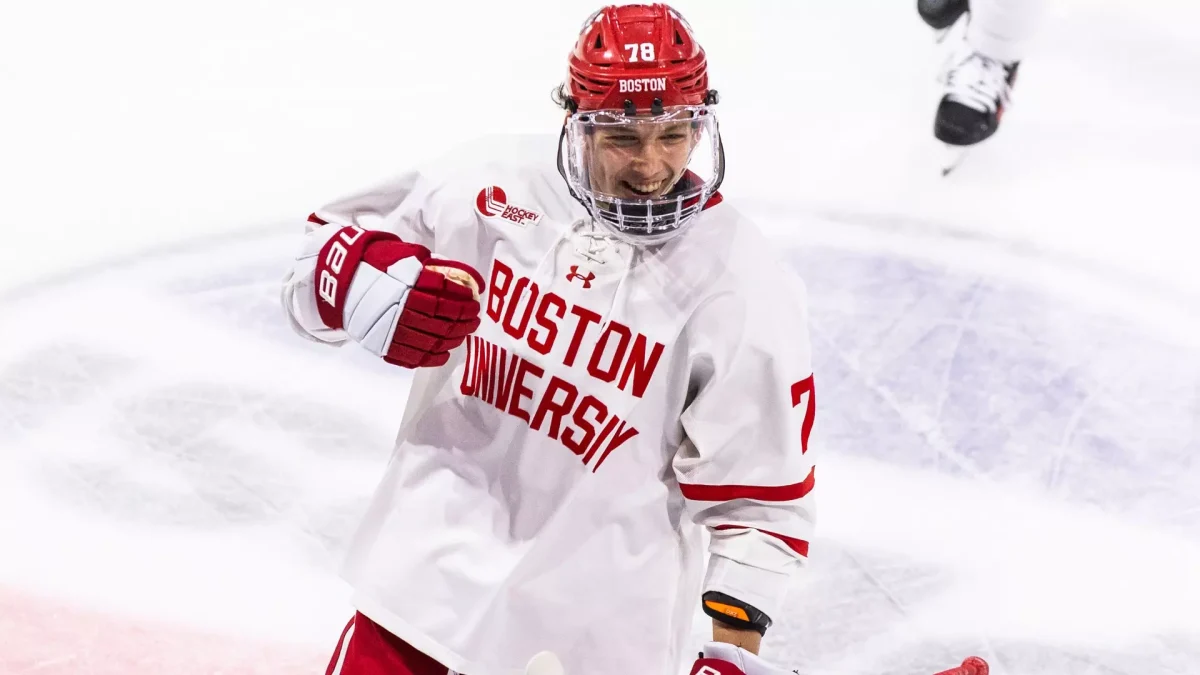


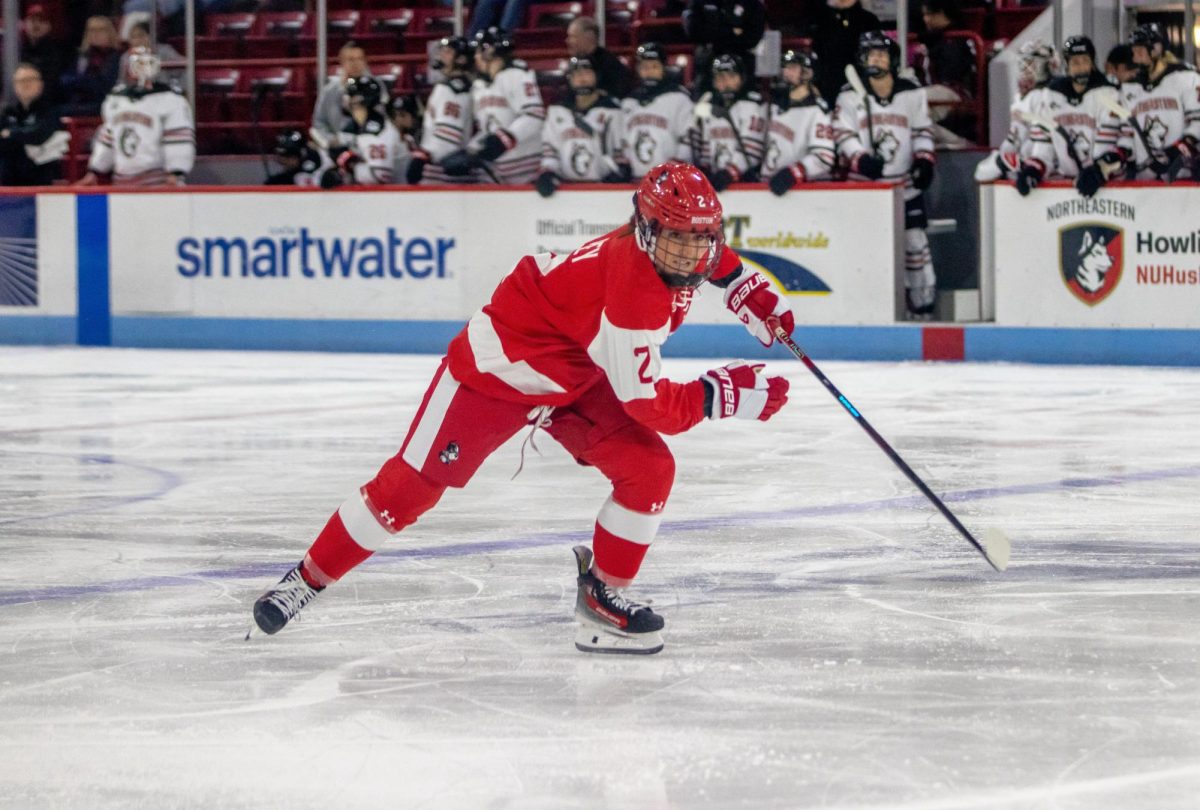
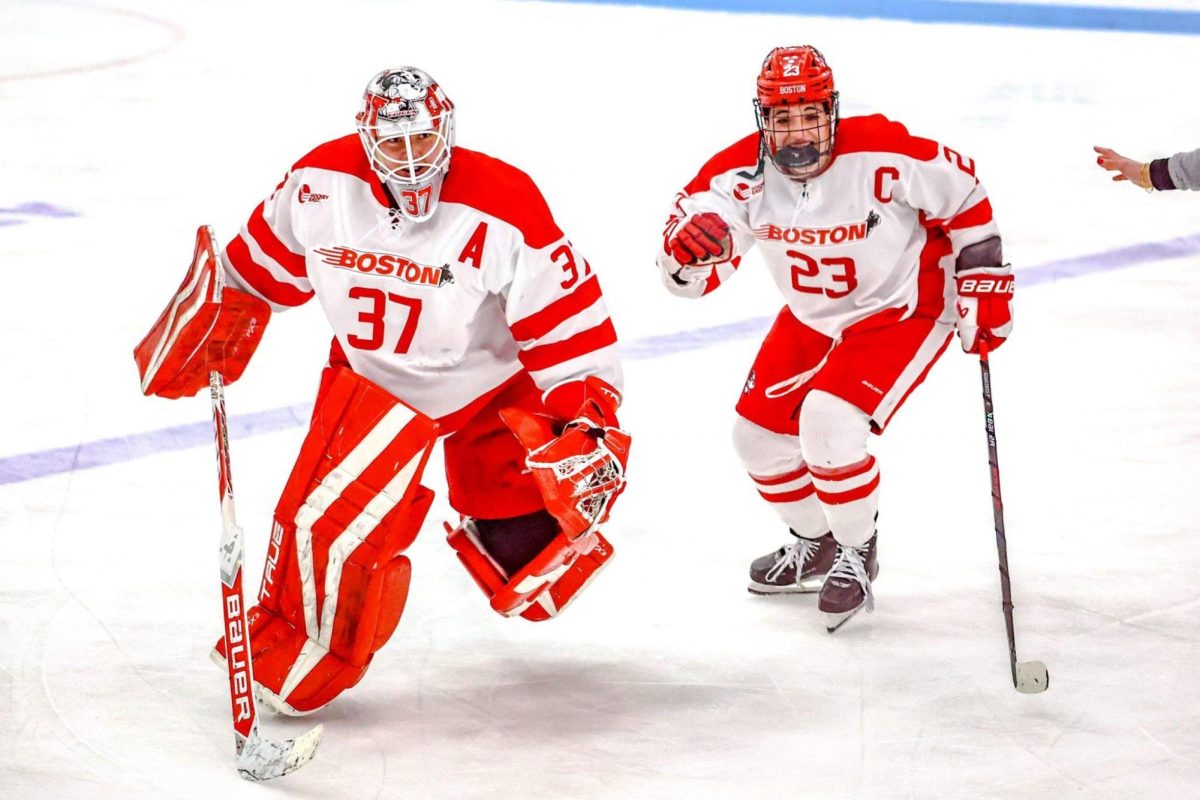
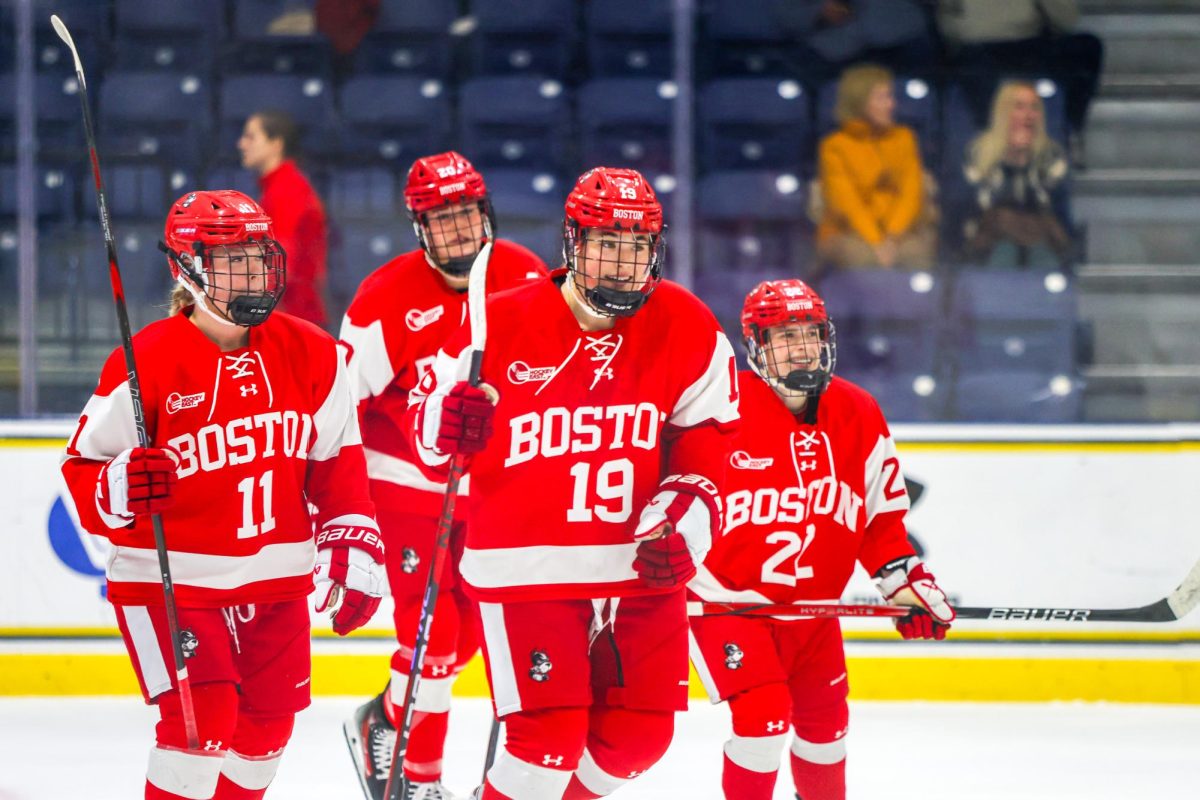
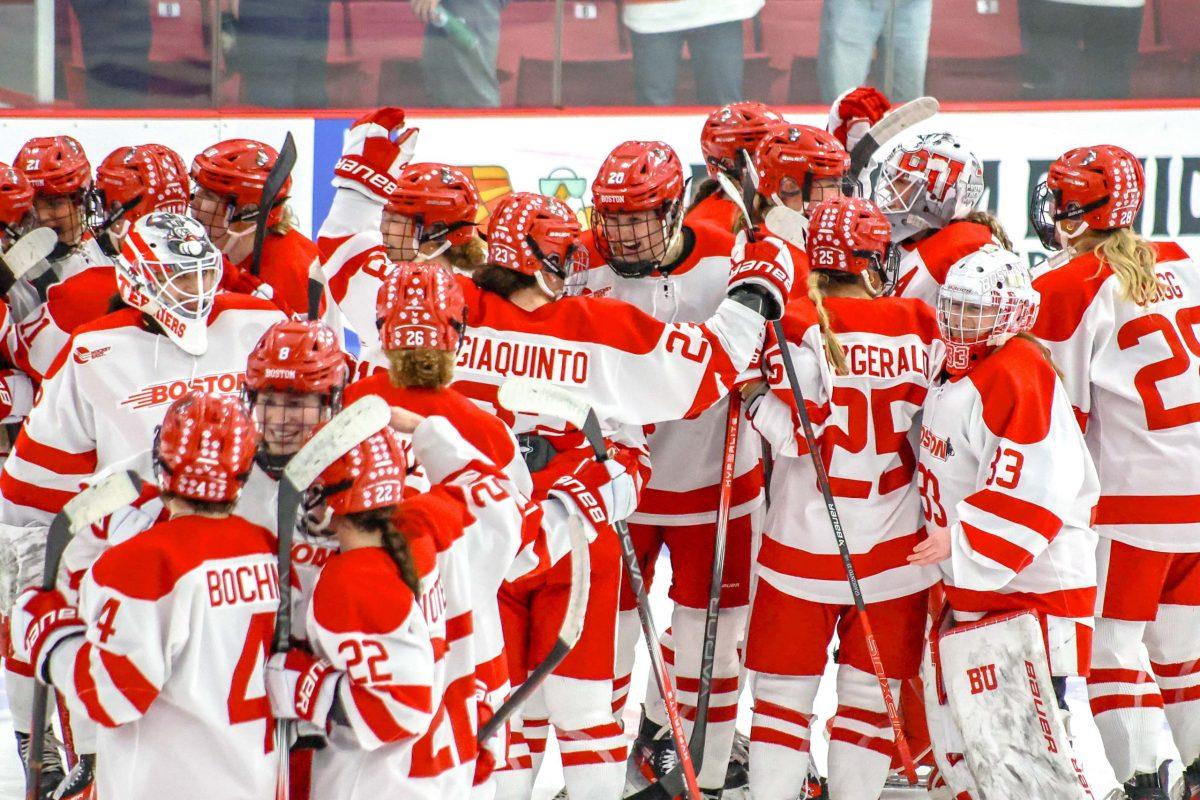
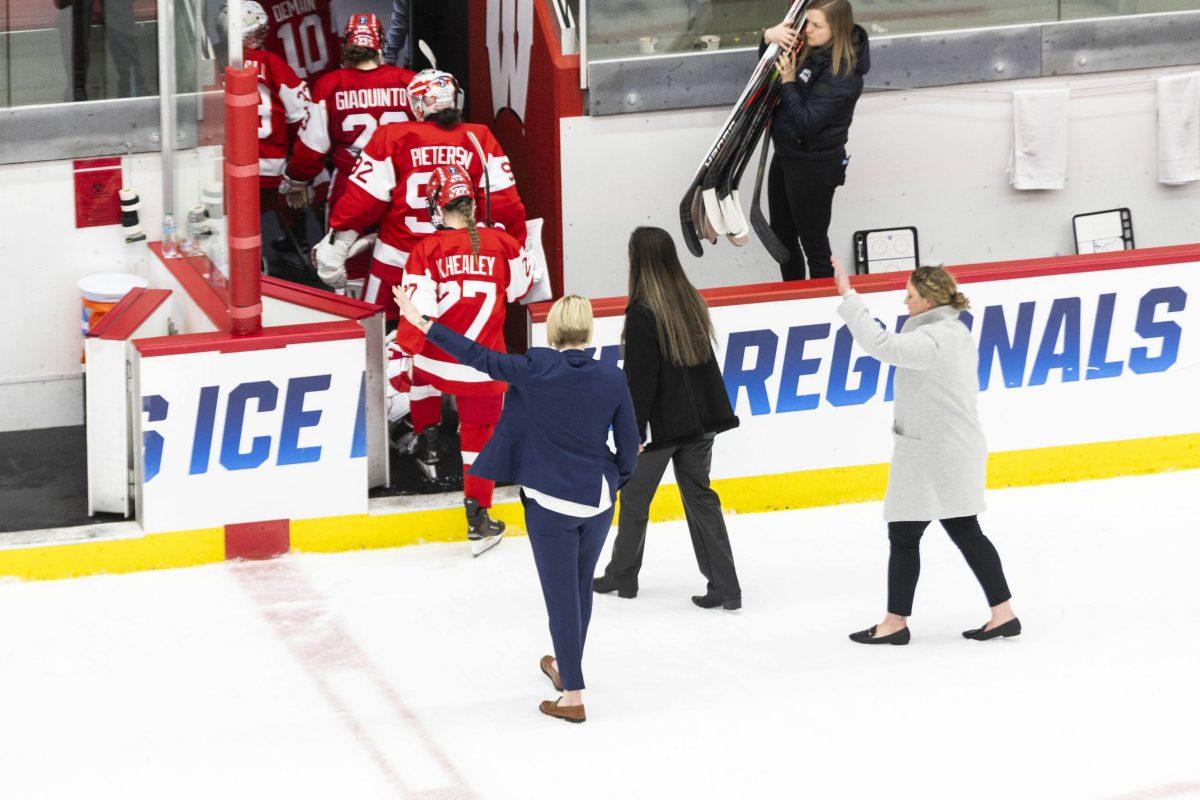
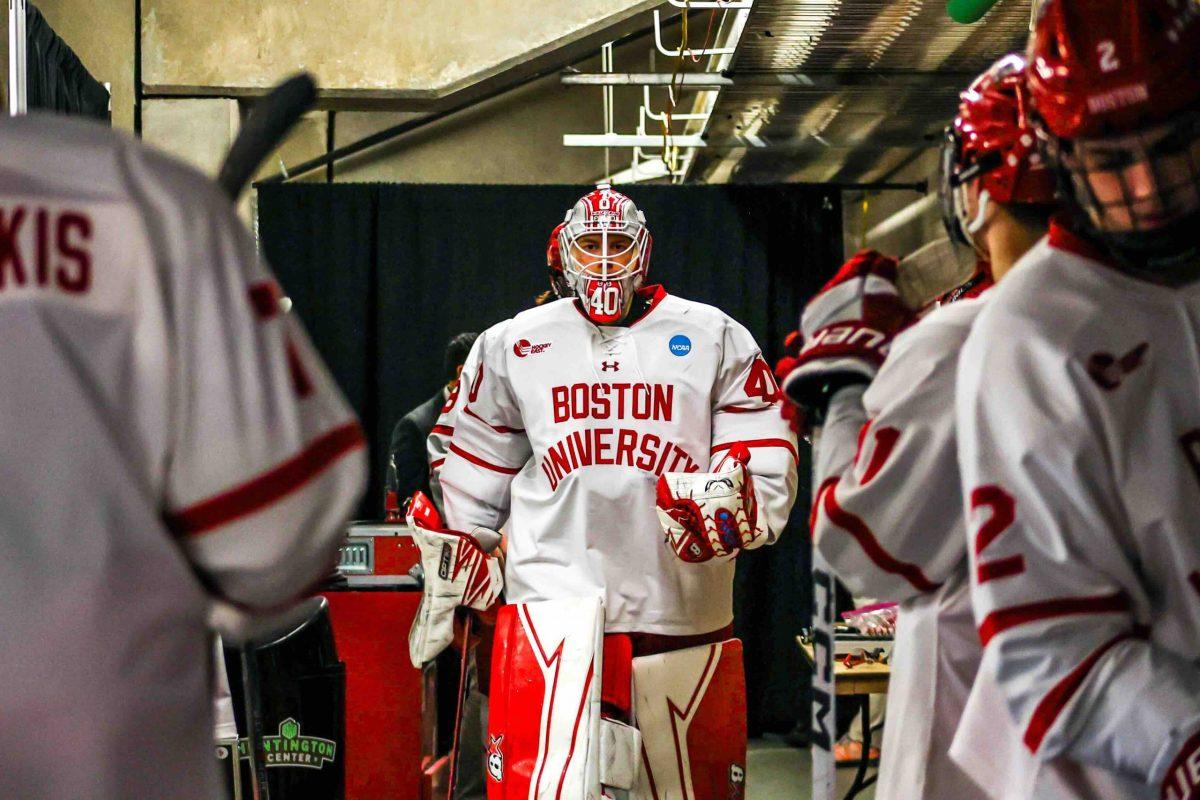
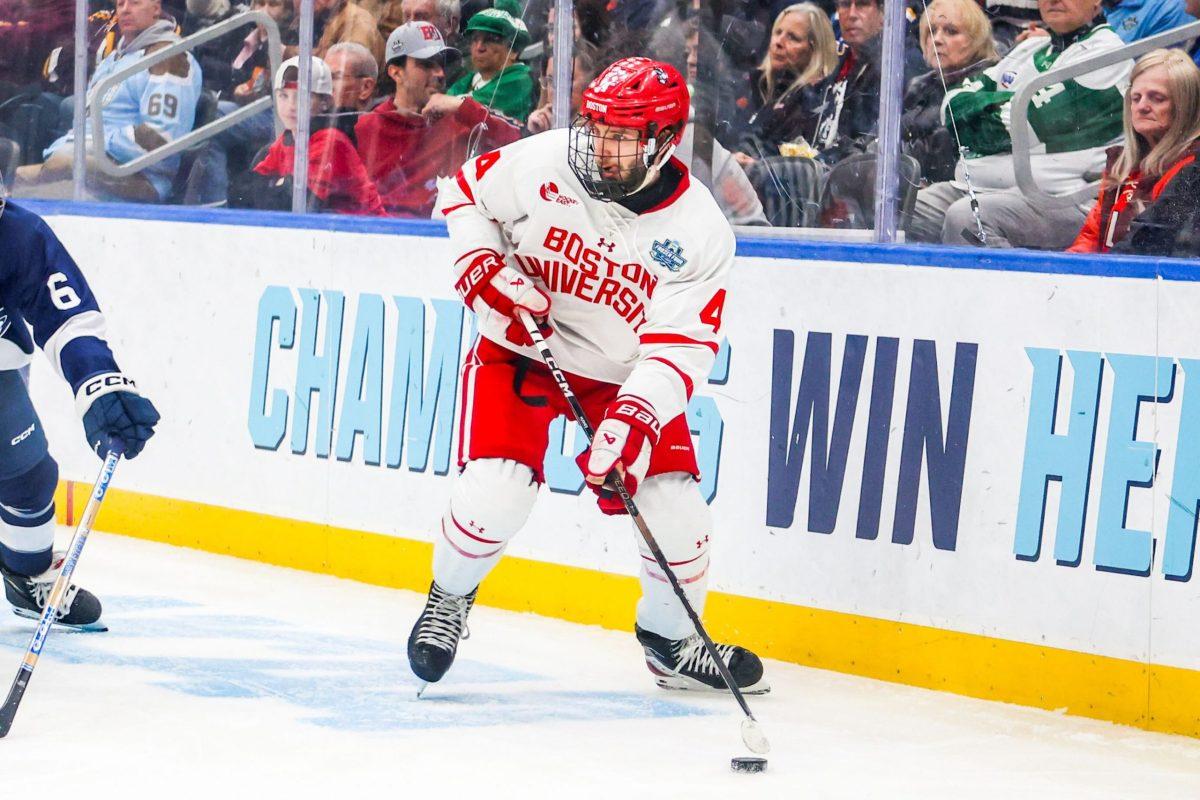
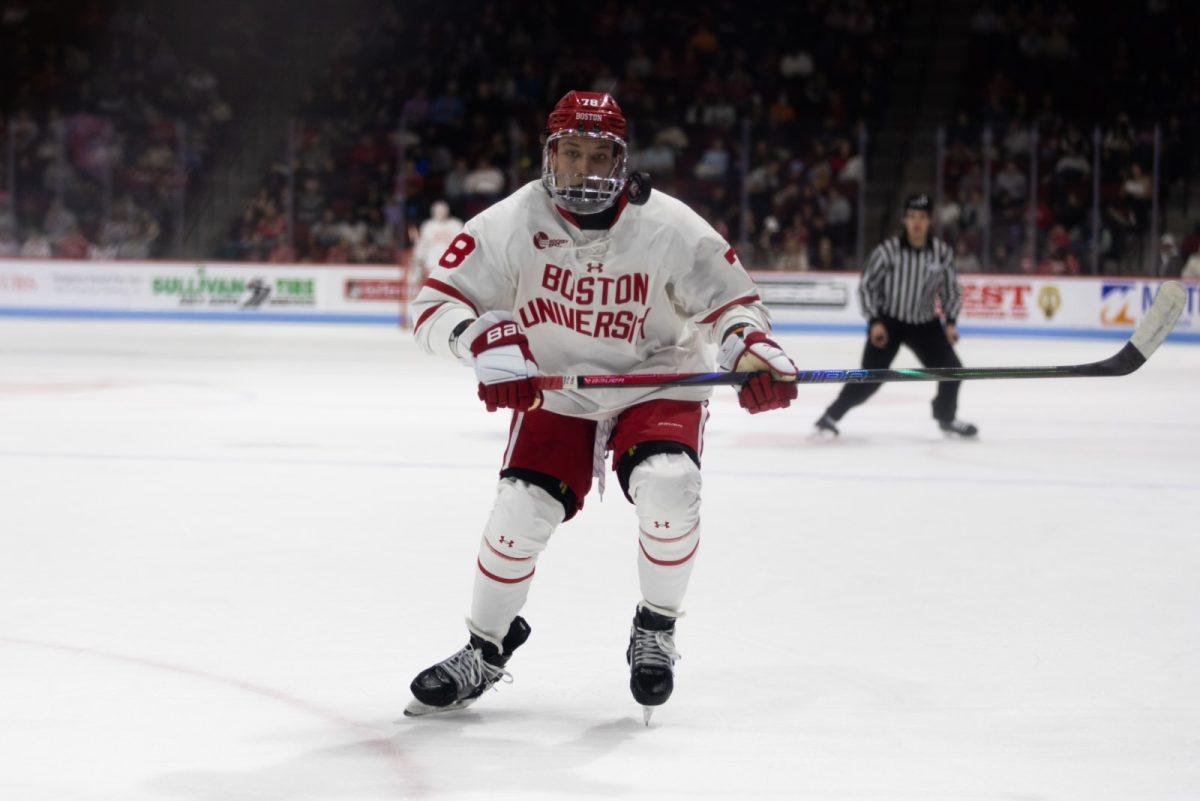
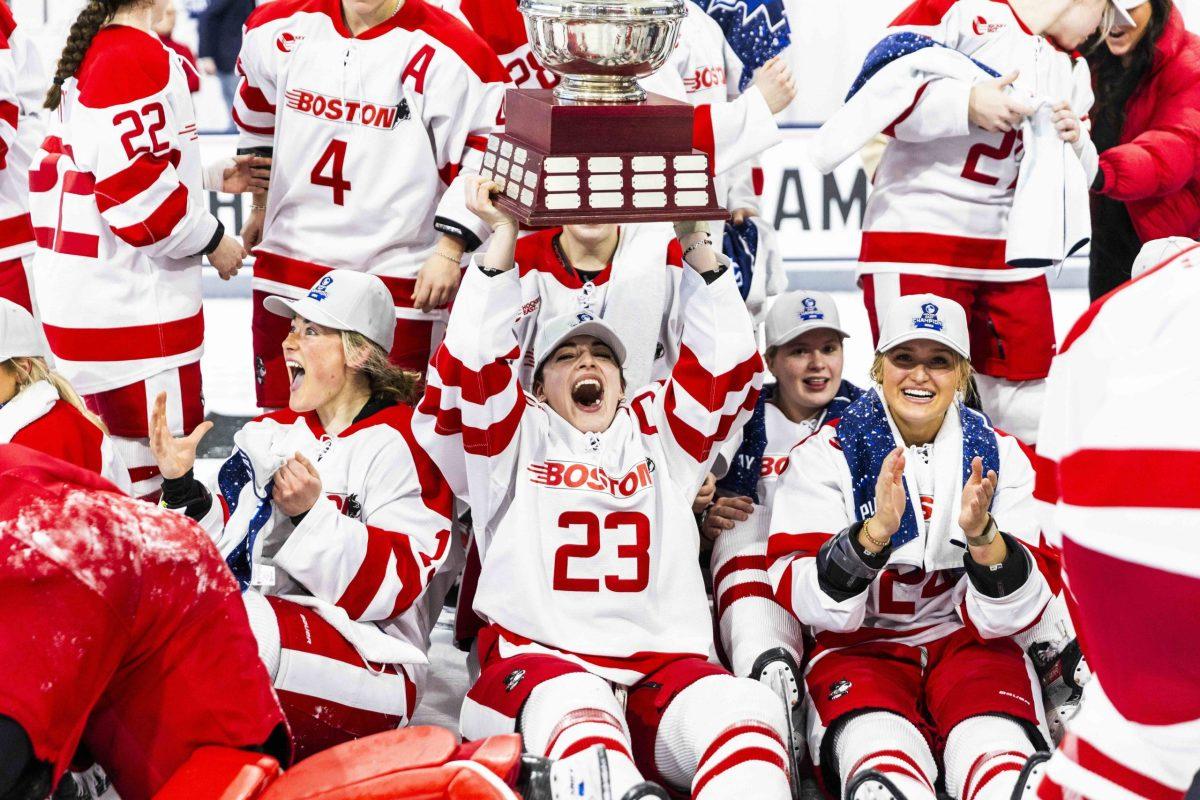

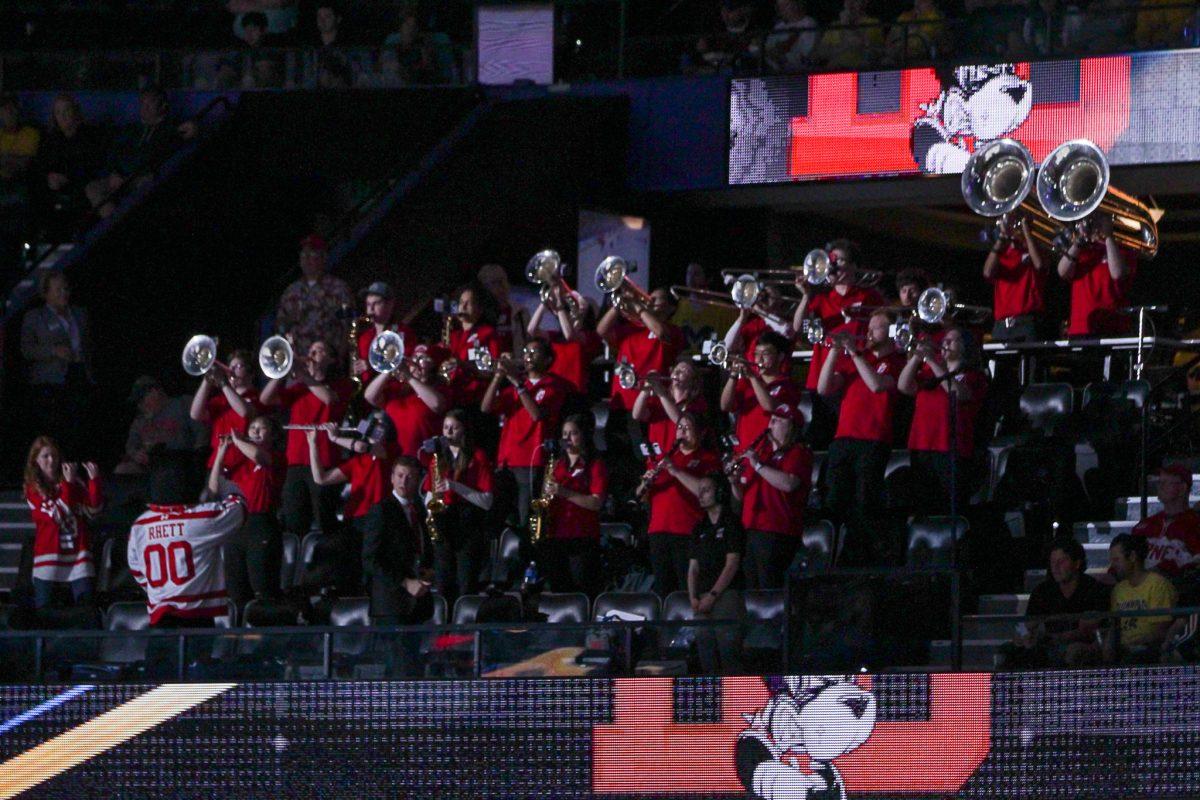
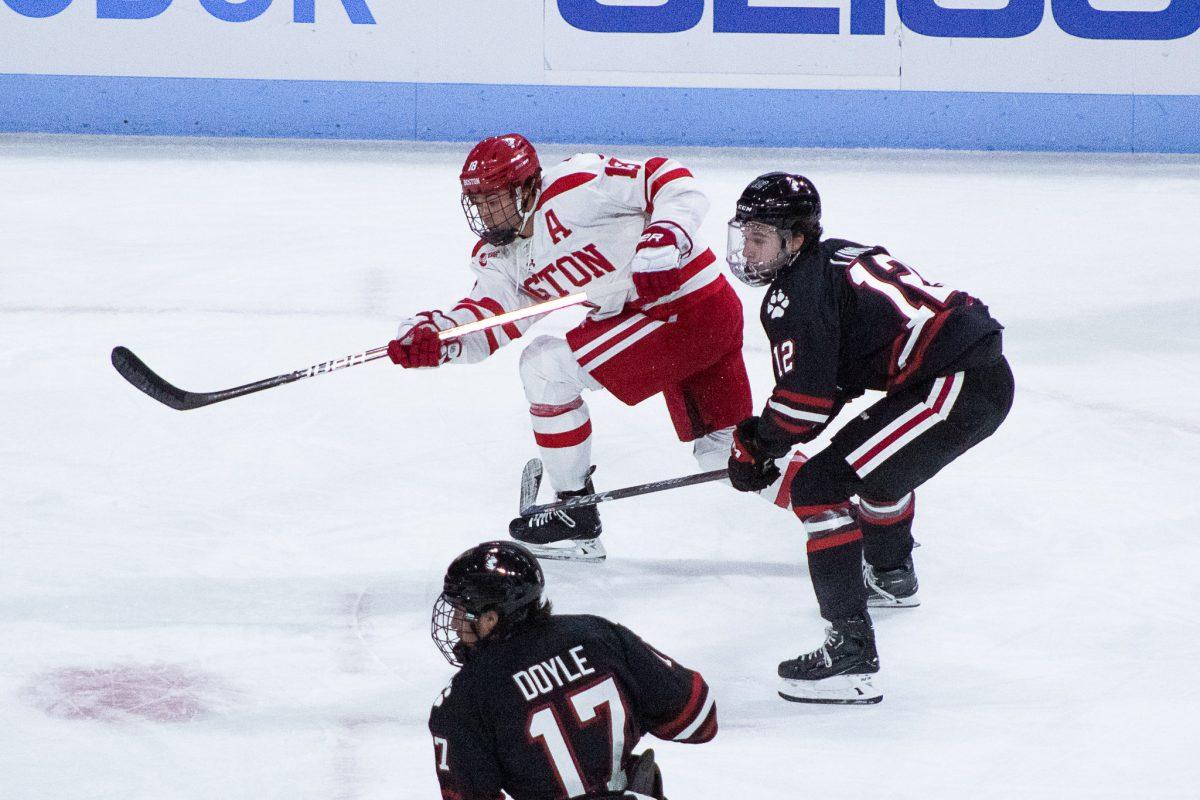
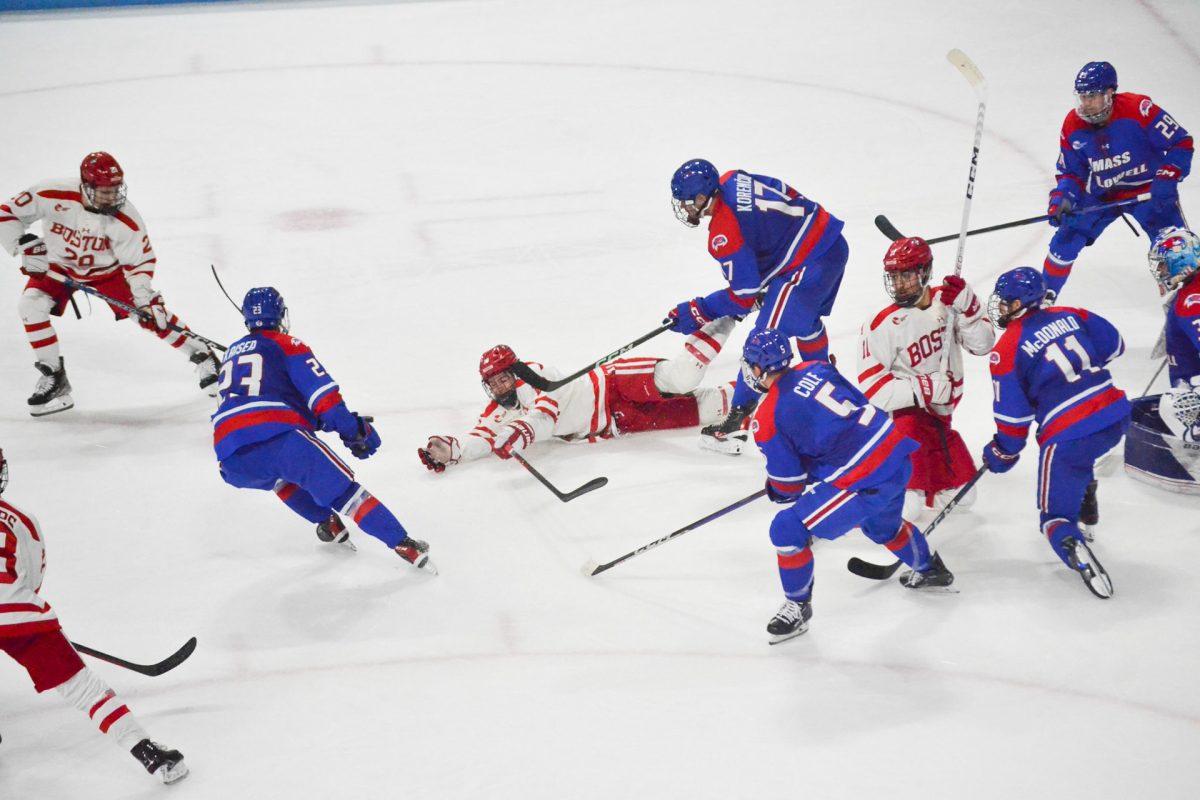
Anonymous • Jun 3, 2012 at 3:32 pm
Guess the BU hockey players are stand up guys after all. Figured I would comment on this great story since people only voice their opinions when something bad happens. Keep up the good work boys and good luck next season!